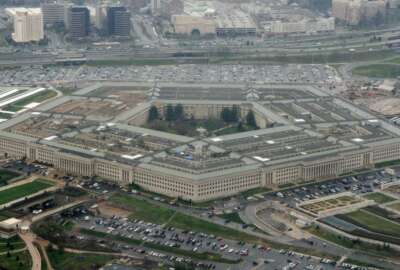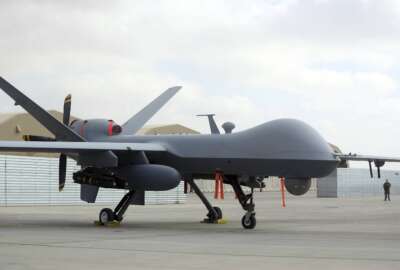DoD needs new force construct to fight multiple wars
A congressionally mandated commission found that the force-sizing construct in the 2022 National Defense Strategy is "inadequate."
The Defense Department needs a new force construct to be able to handle multiple wars in different parts of the world, a congressionally mandated commission found.
For the past two decades, the National Defense Strategies had the two-war construct, requiring the United States to be able to fight and win two wars at once. The Commission on the National Defense Strategy says this model no longer “meets the dimensions of today’s threat” and proposes a multiple theater force construct to “reflect the likelihood of simultaneous conflicts in multiple theaters.”
“The force-sizing construct in the NDS is inadequate for today’s needs and tomorrow’s challenges. We propose a Multiple Theater Force Construct with the Joint Force, in conjunction with U.S. allies and partners, sized to defend the homeland and tackle simultaneous threats in the Indo-Pacific, Europe, and the Middle East,” former Rep. Jane Harman (D-Calif.) and Eric Edelman, a former undersecretary of defense for policy in the George W. Bush administration, wrote in their opening statement to the Senate Armed Services Committee.
The Commission on the National Defense Strategy is a congressionally mandated bipartisan panel tasked with reviewing President Joe Biden’s 2022 National Defense Strategy. Eight commissioners were appointed to conduct the review, including Thomas G. Mahnken, president and CEO of the Center for Strategic and Budgetary Assessments; Former Army Vice Chief of Staff retired Gen. John M. Keane; Hakluyt & Company Executive Mariah Sixkiller; Cloudflare Vice President Alissa Starzak; University of Virginia Professor Mara Rudman; and Washington Director of the Ronald Reagan Presidential Foundation and Institute Roger Zakheim.
At the core of the 2022 NDS is “integrated deterrence,” which seeks to integrate all elements of national power, but the commission argues the concept “is not reflected in practice today.”
“A truly all elements of national power approach is required to coordinate and leverage resources across DoD, the rest of the executive branch, the private sector, civil society, and U.S. allies and partners,” Harman told the Senate Armed Services Committee Tuesday.
“The U.S. needs to project power across our government, leverage the enormous talent and innovation of the tech sector, connect both of those to partners and allies. And then we’ll have impressive deterrence.”
Notably, the commission calls for reenergizing of the general public, where the American public is more educated about national threats and actively participates in national and civil service to support the country’s security goals.
The commission also points out that the DoD’s reliance on old military hardware, “byzantine” research and development and procurement systems, and the current business practices are out of step with the current strategic environment. The Defense Department’s programs such as Replicator are still the exception rather than the rule, the commission said. “They are essentially efforts to work around the larger Pentagon system.”
Russia’s invasion of Ukraine in 2022 exposed the limitations of the U.S. defense industrial production, Edelman told the Senate Armed Services Committee. “It’s shown that [DIB] is grossly inadequate to provide the equipment technology and munitions that the U.S. military and our allies and partners need today, let alone given the demands of a potential future conflict which might be even more taxing.”
The commission also found that the Joint Force is “at the breaking point of maintaining readiness today.”
“Adding more burden without adding resources to rebuild readiness will cause it to break,” said Harman.
Some of the issues raised by the commission in its final report have been well-documented. But the commission’s calls for a strategic shift, the need for future budgets to support defense and national security efforts across various government and technology sector, and the need to prepare for what a wartime mobilization would entail is a “sobering” reality, said Sen Jack Reed (D-R.I.), the head of the Senate Armed Services Committee.
Copyright © 2025 Federal News Network. All rights reserved. This website is not intended for users located within the European Economic Area.







